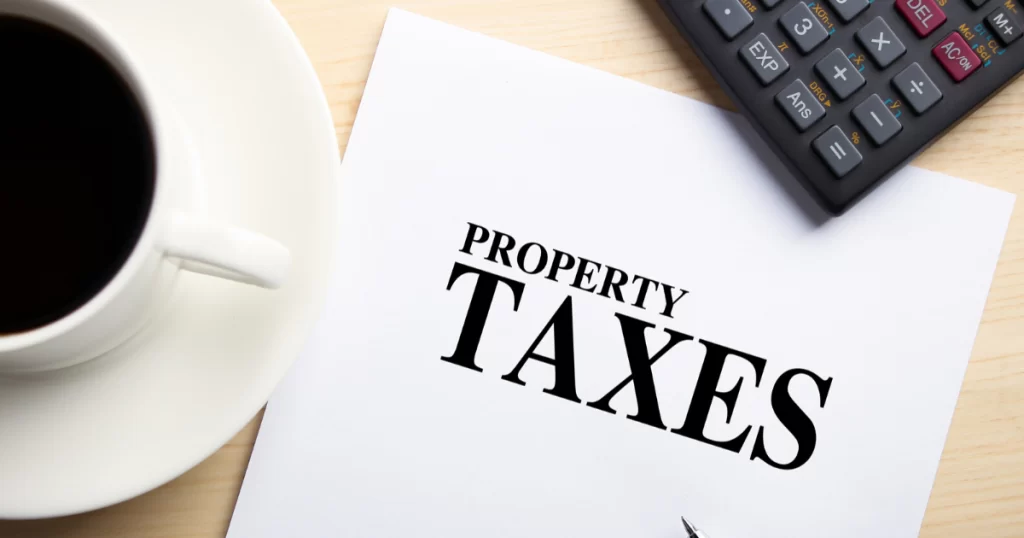Understanding Property Taxes: What Homeowners Need to Know
Owning a home is a significant achievement and a source of pride for many. However, with homeownership comes the responsibility of paying property taxes. Understanding property taxes can be confusing, especially for new homeowners. This guide will help you navigate the complexities of property taxes, from how they are calculated to ways you can reduce your tax burden. Let’s dive into everything homeowners need to know about property taxes.

- What Are Property Taxes?
- How Property Taxes Are Calculated
- Understanding Property Tax Rates
- Factors Influencing Property Taxes
- How to Find Your Property Tax Information
- Paying Your Property Taxes
- Property Tax Deductions and Exemptions
- Appealing Your Property Tax Assessment
- Impact of Property Taxes on Homeowners
- Conclusion
- FAQs
What Are Property Taxes?
Property taxes are levies imposed by local governments on real estate properties. These taxes are a primary source of revenue for municipalities, funding essential services such as schools, roads, police, and fire departments.
Why Property Taxes Are Important
- Community Funding: Property taxes help maintain and improve public services.
- Local Government Revenue: They are crucial for the financial health of local governments.
- Impact on Property Values: High property taxes can affect real estate market trends and home values.
How Property Taxes Are Calculated
Understanding how property taxes are calculated is essential for homeowners. The calculation typically involves the property’s assessed value and the local tax rate.
Steps to Calculate Property Taxes
- Determine Assessed Value: This is the value assigned to your property by the local tax assessor based on market value, location, and other factors.
- Apply Tax Rate: Multiply the assessed value by the local tax rate, often expressed as a percentage or mill rate (1 mill = $1 per $1,000 of assessed value).
- Consider Exemptions: Subtract any applicable exemptions, such as homestead or senior exemptions.
Example Calculation
- Assessed Value: $300,000
- Tax Rate: 1.2%
- Property Tax: $300,000 x 0.012 = $3,600

Understanding Property Tax Rates
Property tax rates vary by location and are determined by local government budgets and funding needs.
Components of Property Tax Rates
- Base Rate: Covers essential services like schools and emergency services.
- Special Assessments: Additional charges for specific projects, such as road improvements.
- Voter-Approved Levies: Temporary increases for specific purposes, such as new schools or parks.
How to Find Your Local Tax Rate
- Local Tax Assessor’s Office: Contact your local assessor’s office for current rates.
- Municipal Website: Many local governments publish tax rate information online.
- Property Tax Bill: Review your annual tax bill for detailed rate information.
Factors Influencing Property Taxes
Several factors can influence the amount of property taxes you pay.
Key Factors Affecting Property Taxes
- Property Value: Higher property values result in higher taxes.
- Location: Taxes can vary significantly between neighborhoods and regions.
- Local Budget Needs: Increased funding for public services can lead to higher taxes.
- Market Trends: Rising real estate prices can increase assessed values.
How to Stay Informed
- Monitor Market Trends: Keep an eye on local real estate trends and property values.
- Attend Local Meetings: Participate in town meetings to stay informed about budget changes.
How to Find Your Property Tax Information
Accessing your property tax information is essential for accurate budgeting and planning.
Ways to Access Property Tax Information
- Online Portals: Many municipalities offer online portals to view tax bills and assessments.
- Tax Assessor’s Office: Visit or call your local assessor’s office for assistance.
- Annual Tax Statement: Review your annual tax statement for detailed information.
Tips for Keeping Records
- Organize Documents: Keep copies of tax bills, assessments, and payment receipts.
- Set Reminders: Use calendar reminders for tax payment deadlines to avoid penalties.
Paying Your Property Taxes
Timely payment of property taxes is crucial to avoid penalties and interest.
Methods of Payment
- Online Payments: Many municipalities offer secure online payment options.
- Mail: Send a check or money order to the local tax office.
- In-Person: Pay in person at the tax assessor’s office or designated locations.
Setting Up Automatic Payments
- Banking Services: Many banks offer bill pay services to automate property tax payments.
- Escrow Accounts: Mortgage lenders may include property taxes in monthly payments through an escrow account.
Property Tax Deductions and Exemptions
Homeowners may be eligible for deductions and exemptions to reduce their property tax burden.
Common Deductions and Exemptions
- Homestead Exemption: Reduces taxable value for primary residences.
- Senior Citizen Exemption: Offers tax relief for qualifying seniors.
- Disability Exemption: Available to homeowners with disabilities.
How to Apply for Exemptions
- Check Eligibility: Review local requirements for each exemption.
- Submit Applications: Complete and submit applications by deadlines to qualify.
Appealing Your Property Tax Assessment
If you believe your property tax assessment is incorrect, you have the right to appeal.
Steps to Appeal an Assessment
- Review Assessment: Carefully review your assessment for errors.
- Gather Evidence: Collect evidence, such as recent appraisals or sales data, to support your case.
- File an Appeal: Submit an appeal to the local tax assessor’s office within the designated timeframe.
Tips for a Successful Appeal
- Be Prepared: Present a clear and concise case with supporting documentation.
- Stay Professional: Approach the process professionally and respectfully.
- Follow Up: Monitor the status of your appeal and follow up as needed.

Impact of Property Taxes on Homeowners
Property taxes can have a significant impact on homeowners, affecting their finances and lifestyle.
Financial Implications
- Budgeting: Property taxes are a significant annual expense that requires careful budgeting.
- Home Value: High taxes can influence home values and marketability.
- Affordability: Rising taxes may affect affordability for current and prospective homeowners.
Strategies for Managing Impact
- Plan Ahead: Incorporate property taxes into your long-term financial planning.
- Explore Options: Consider refinancing or downsizing if taxes become burdensome.
Conclusion
Understanding property taxes is essential for homeowners to make informed decisions about their finances and property investments. By familiarizing yourself with how property taxes are calculated, exploring deductions and exemptions, and knowing your rights to appeal, you can effectively manage your tax obligations and plan for the future. Stay informed and proactive to ensure that property taxes remain a manageable aspect of your homeownership experience.
FAQs
1. How often are property taxes reassessed?
Property taxes are typically reassessed annually or biennially, depending on local regulations.
2. Can property taxes change after I purchase a home?
Yes, property taxes can change due to reassessments, changes in tax rates, or modifications to the property.
3. Are property taxes the same everywhere?
No, property tax rates and regulations vary by location and are determined by local governments.
4. What happens if I don’t pay my property taxes?
Failure to pay property taxes can result in penalties, interest, and potentially a lien on your property.
5. Can I deduct property taxes on my federal income tax return?
Yes, homeowners can often deduct property taxes on their federal income tax returns, subject to certain limitations and eligibility criteria.
